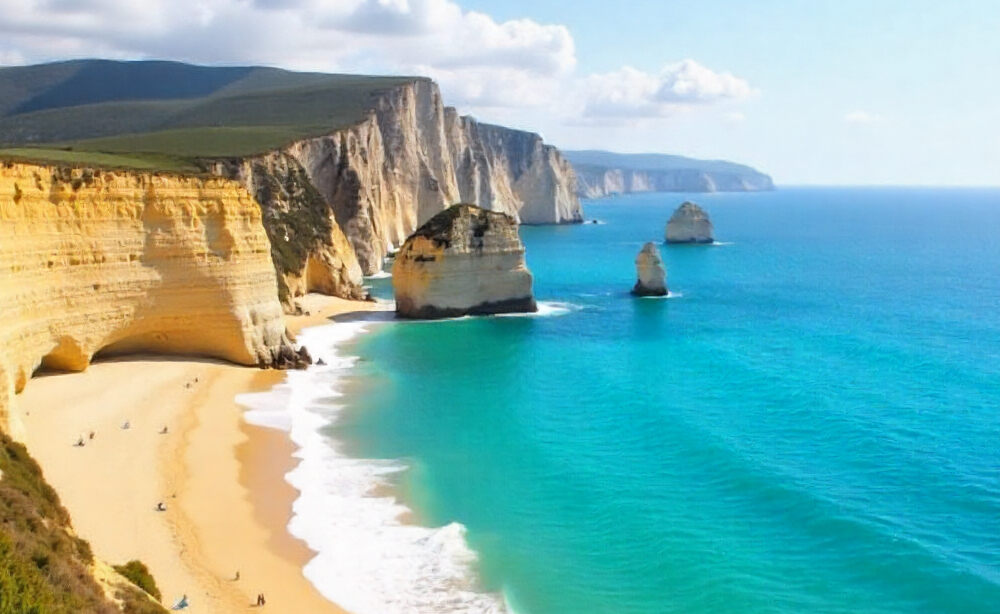Home » Spain Travel News » Spain’s Proposes Drastic Tourist Tax Increase for Balearic Islands, Potentially Impacting Millions of British Travelers This Summer
Published on
November 9, 2025
Spain’s proposal to dramatically raise the tourist tax in the Balearic Islands is set to significantly impact British holidaymakers, with the potential to transform travel costs this summer. The new tax hike, which could see charges soar to €15 per person per night during peak season, is aimed at generating additional revenue for local governments and alleviating the growing pressures of overcrowding. With nearly five million British visitors flocking to the islands each year, this increase would be a substantial financial burden on families, particularly as it seeks to curb the strain on local housing and infrastructure caused by a surge in tourism.
Holidaymakers heading to Spain may soon face a significant rise in travel costs, as new proposals target the tourist tax on visitors to the Balearic Islands.
The Balearic Islands, home to the renowned vacation hotspots of Mallorca, Menorca, Ibiza, and Formentera, along with the smaller Cabrera island and over 150 other islets, could see a steep increase in the tourist tax charged to travelers. Currently, tourists, particularly those from the UK, pay a fee based on both the quality of their accommodation and the season of their visit. This structure was originally introduced to help sustain the local infrastructure and manage the impact of the rising number of visitors to the region.
At present, British visitors to Mallorca, Ibiza, and Menorca face a range of charges. For example, during the peak summer season, the fees are as follows: €4 (£3.50) per person per night in a five-star hotel, €3 in mid-range accommodation, €2 for budget stays, and €1 for hostels. These rates see a significant reduction during the off-peak months, where the cost drops by up to 75%.
The Balearic Islands are a popular destination for UK tourists, with an estimated 18 million British visitors traveling to Spain each year. About 27% of them, or nearly five million, choose to spend their holidays on the Balearic Islands. This makes the region a key player in Spain’s tourism sector, and any significant changes to the tourist tax would have far-reaching consequences.
The Workers’ Commission, one of Spain’s largest trade unions, has been vocal about pushing for an increase in the tourist tax. They have proposed raising the fee to €15 (£13) per person, per night during the peak months of July and August, which are the busiest months of the year for tourism in the Balearics. If this proposal is accepted, it would result in a substantial cost increase for holidaymakers. For example, a family of four staying in a luxury resort for two weeks would face a tax bill of €840 (£736) at the new rate, a significant jump from the current €224 (£196) they would pay.
The proposed increase in the tax aims to achieve two primary objectives: generate more revenue for the local government and reduce the environmental and social pressures caused by the increasing number of tourists. Local residents have long voiced concerns about overcrowding, with many complaining about the rising cost of housing. The popularity of vacation rentals, such as those listed on platforms like Airbnb, has led to a situation where many properties are being taken off the long-term rental market. This has contributed to a sharp increase in rental prices, making it difficult for local residents to afford housing in the very communities they have lived in for years.
Moreover, there are growing concerns among locals about the behavior of certain tourists, with complaints of noise, vandalism, and other forms of disruptive behavior becoming more frequent. These issues have further fueled the demand for measures that will help regulate tourism and mitigate its negative effects on the local population.
The government’s plan to hike the tourist tax is not without controversy. While it is expected to generate much-needed revenue for the islands, there are concerns that it could drive potential visitors away, especially those traveling on a budget. Tourism is a vital part of the economy in the Balearics, and any significant drop in visitor numbers could harm the region’s hospitality industry, which heavily depends on tourism-related income.
Some tourism experts argue that the proposed tax hike could set a dangerous precedent for other popular tourist destinations across Spain, potentially leading to a trend where more regions impose similar taxes on visitors. This could further increase the overall cost of traveling to Spain, making it less attractive for international tourists.
While the Balearic Islands’ government and the local tourism sector grapple with how best to balance the needs of the local population and the demands of tourists, it’s clear that the issue of tourism management will continue to play a central role in the region’s development strategy. If the tax hike goes through, it may serve as a model for other destinations facing similar challenges from high levels of tourism.
Spain’s proposed tourist tax increase in the Balearic Islands is set to raise costs for British holidaymakers, aiming to ease overcrowding and generate revenue. With nearly five million Brits visiting annually, the hike could significantly impact family budgets this summer.
In conclusion, the proposed increase in the tourist tax for the Balearic Islands represents a significant shift in how Spain is managing its tourism industry. While the move aims to address local concerns over overcrowding and rising housing costs, it could also lead to higher travel expenses for visitors. As the debate continues, it remains to be seen how this decision will affect the future of tourism in one of Spain’s most beloved regions.
